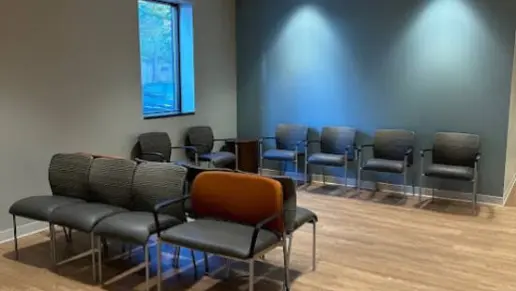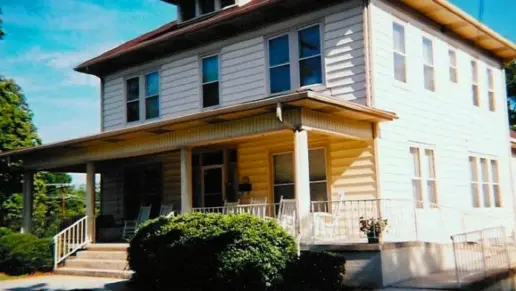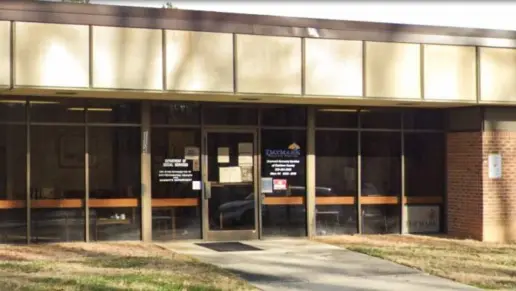About Path of Hope Inc
Path of Hope Inc is located in Lexington, North Carolina. This is a drug rehab facility that serves men and women who need support for a drug or alcohol use disorder. They offer treatment in a residential setting. They accept policies from most major insurance providers.
Their treatment is tailored to your recovery needs. You’ll work with an intake team that will create an individualized treatment plan to help you navigate your recovery struggles. Some of the evidence supports you’ll find here include motivational enhancement therapy.
They also follow the matrix model and Stephanie Covington’s trauma model. Through these approaches, you’ll learn actionable skills that you can apply to your life so that you can begin building healthy habits. You’ll also learn different coping strategies and techniques that will help you manage negative thoughts and emotions that may lead to relapse.
This residential treatment program is moderately structured so that you establish a consistent and regular routine. Family members are able to visit you here, and when they do, they’ll be included in therapy sessions. This will empower your loved ones with the skills they need to help support you during your recovery.
You’ll work with various medical and mental health professionals including certified addiction specialists. There are other mental health professionals who will help you navigate the treatment in your recovery plan.
Other programs include 12 Step style programs, such as Narcotics Anonymous and Alcoholics Anonymous. Through these programs, you’ll have a network of peers you can turn to when you need support.
Latest Reviews
Location
Location
Accepted Insurance
Other Forms of Payment
Private insurance refers to any kind of healthcare coverage that isn't from the state or federal government. This includes individual and family plans offered by an employer or purchased from the Insurance Marketplace. Every plan will have different requirements and out of pocket costs so be sure to get the full details before you start treatment.
Self-pay involves paying for treatment out of your own pocket. You can use savings or credit, get a personal loan, or receive help from family and friends to fund your treatment. If you don't have insurance or your insurance plan doesn't cover a specific program, self-pay can help ensure you still get the care you need.
Financial aid can take many forms. Centers may have grants or scholarships available to clients who meet eligibility requirements. Programs that receive SAMHSA grants may have financial aid available for those who need treatment as well. Grants and scholarships can help you pai for treatment without having to repay.
Addiction Treatments
Levels of Care
Treatments
The goal of treatment for alcoholism is abstinence. Those with poor social support, poor motivation, or psychiatric disorders tend to relapse within a few years of treatment. For these people, success is measured by longer periods of abstinence, reduced use of alcohol, better health, and improved social functioning. Recovery and Maintenance are usually based on 12 step programs and AA meetings.
There are many types of drug rehab in North Carolina. To receive treatment for addiction, you can choose from many inpatient and outpatient programs. Often, participants start with detox and work through a full continuum of care that continues with ongoing support for long-term recovery.
Opioid rehabs specialize in supporting those recovering from opioid addiction. They treat those suffering from addiction to illegal opioids like heroin, as well as prescription drugs like oxycodone. These centers typically combine both physical as well as mental and emotional support to help stop addiction. Physical support often includes medical detox and subsequent medical support (including medication), and mental support includes in-depth therapy to address the underlying causes of addiction.
Substance rehabs focus on helping individuals recover from substance abuse, including alcohol and drug addiction (both illegal and prescription drugs). They often include the opportunity to engage in both individual as well as group therapy.
Programs







Clinical Services
Men and women enjoy a supportive environment within group therapy sessions for drug and alcohol addiction treatment. You can share your experiences and build connections with your peers while receiving encouragement from individuals who have faced similar challenges.
You usually develop a strong bond with your therapist during individual therapy sessions. This helps you explore the underlying causes of your substance use in a safe and nonjudgmental environment. Therapists help you develop effective coping strategies you can use in the community and improve your self awareness so you understand your addiction triggers.
Research clearly demonstrates that recovery is far more successful and sustainable when loved ones like family members participate in rehab and substance abuse treatment. Genetic factors may be at play when it comes to drug and alcohol addiction, as well as mental health issues. Family dynamics often play a critical role in addiction triggers, and if properly educated, family members can be a strong source of support when it comes to rehabilitation.
Amenities
-
Residential Setting
-
Private Setting
Contact Information
1675 East Center Street
Lexington, NC 27292



